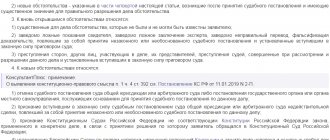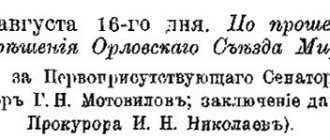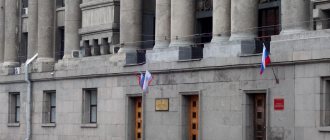Once a court decision has been made and entered into legal force, it becomes binding on all citizens and organizations. When rendering it, the court examines all the arguments of the case stated by the parties and makes a verdict on this basis. However, a situation may arise when the list of facts examined by the court does not include all the circumstances that could influence the court’s conclusions. In this case, it is possible to reconsider the case based on newly discovered (and in some cases even newly emerged) circumstances.
When can a case be reviewed?
The conditions for reviewing a court decision in a civil case based on newly discovered circumstances are set out in Article 392 of the Code of Civil Procedure of the Russian Federation. This mechanism is designed to ensure the implementation of justice in full and the correction of errors unwittingly made during the first examination.
The grounds for revision may be:
- Circumstances that were newly discovered after the issuance of a judicial act (that is, those that existed at the time of consideration of the case, but for objective reasons did not previously become known to the court and the participants in the process);
- New circumstances that arose after the court decision was made.
A review is possible if not any of the circumstances listed above arise, but only one of those mentioned in the law.
Newly discovered and new circumstances: differences
The list of both types of circumstances is contained in Article 392 of the Code of Civil Procedure of the Russian Federation (parts three and four). The main difference between them is the moment of occurrence: new circumstances arise after the court decision, while newly discovered circumstances existed before that moment (although they were not known to the applicant for a review of the case).
Newly opened
According to Art. 392 of the Code of Civil Procedure of the Russian Federation, newly discovered circumstances in a civil case include:
- Facts that are significant, but were not and in principle could not be known to the person who requests a review of the court decision.
Olga Smirnova
Civil lawyer, Master of Laws
The reasons why the circumstances did not become known earlier may be different: concealment of evidence, discovery of new facts, and other similar reasons. When applying to the court to review a decision on this basis, it is important to prove that the applicant did not have the opportunity to know about such circumstances earlier.
- Falsification of evidence or deliberately false testimony of witnesses or experts.
Facts of falsification or false testimony must be properly confirmed. These are criminal offenses. Therefore, to confirm them, a court verdict is required, which establishes the fact of the commission of the relevant crime and identifies the persons guilty of it.
It is important that the basis for review will not be any falsified evidence, but only those that led to an incorrect court decision. The decision on the extent to which a particular document or other evidence influenced the court’s conclusions is made by the court when considering an application for reconsideration of the case.
- Crimes of certain participants in a court case (parties, third parties, representatives, judges) committed during the consideration of the case and influenced the court decision.
On this basis, cases in which the decision was influenced by bribes, bribery, and other similar circumstances may be reviewed. The facts serving as the basis for review must be confirmed by a court verdict that has entered into legal force. Its presence is an unconditional basis for reviewing a court decision.
New circumstances
New circumstances include changes in various judicial acts that occurred after the decision was made (Part 4 of Article 392 of the Code of Civil Procedure of the Russian Federation):
- Cancellation of the court decision on the basis of which the decision being annulled was made.
Olga Smirnova
Civil lawyer, Master of Laws
This situation arises if the case was considered taking into account the prejudice (bindingness) of a previously issued judicial act with the participation of the same parties, which contained conclusions about the factual circumstances affecting the current trial. If such a judicial act is overturned, then all decisions based on it can be revised.
- The Plenum of the Supreme Court or the Presidium of the Supreme Court generalized the practice of applying the legal norm, giving its decision retroactive effect. In this case, cases based on similar facts may be reviewed.
- The court decision invalidated the transaction on the basis of which the annulled court order was issued.
- The Constitutional Court found the law that was applied in the decision being annulled at the request of the applicant to be inconsistent with the Constitution of the Russian Federation.
- The applicant received a decision from the European Court of Human Rights, which found a violation of the Convention for the Protection of Human Rights and Fundamental Freedoms during the consideration of the court case.
- If the decision made concerned the recognition of the structure as an unauthorized construction, a change or establishment of new grounds for such recognition, taking into account which the decision on demolition would not be made.
Revision of a civil case due to newly discovered circumstances or new circumstances
This material was prepared in accordance with Resolution of the Plenum of the Supreme Court of the Russian Federation No. 31 of December 11, 2012 “On the application of the norms of the Civil Procedure Code of the Russian Federation when courts consider applications, submissions for review of court decisions that have entered into legal force based on newly discovered or new circumstances.” If you need to obtain legal assistance on the issues of reviewing court decisions due to newly discovered or new circumstances, you can contact the lawyers of the Domkiny and Partners Law Office who have professional specialization in this area of law.
The publication was prepared on the basis of the law as of 01/01/2013.
In accordance with civil procedural legislation, all decisions of the courts of first instance, rulings of the appellate instance, decisions and rulings of cassation courts, as well as decisions of the Presidium of the Supreme Court of Russia that have entered into legal force can be revised based on newly discovered or new circumstances. Review according to general rules is carried out by the court that adopted the decision. The appellate, cassation instance, and the Presidium of the Supreme Court of the Russian Federation have the right to review the decisions they made only in the case when they changed the decision of the lower court or issued a new decision.
In addition, in accordance with paragraph 2 of Part 1 of Article 331 of the Code of Civil Procedure of the Russian Federation, the law does not exclude the possibility of revising court rulings that do not resolve the case on the merits, but only if they exclude the possibility of further progress of the case.
Procedural initiators of a review of a case based on newly discovered or new circumstances can be both persons participating in the case and other persons, if court decisions resolve the issue of their rights and obligations. The procedural successors of the persons participating in the case also have the right to file applications for review of court decisions in the above circumstances. If the case was initiated at the request of the prosecutor, filed in defense of the rights and legitimate interests of citizens, an indefinite circle of persons or interests of the Russian Federation, constituent entities of the Russian Federation, municipalities, or if the prosecutor entered the process to give an opinion on the case in cases, he also has the right to go to court with a corresponding request for review of court decisions that have entered into legal force.
When filing an application or representation for review of a decision, copies of court decisions adopted in the case, certified by the relevant court, must be attached to it.
It is important to note that no state fee is payable when filing an application for review of regulations.
The provisions of Article 394 of the Code of Civil Procedure of the Russian Federation establish only a three-month period for filing a petition with the court to review court decisions based on newly discovered or new circumstances. In this case, the “reference point” for the passage of the specified period is the date of establishing the grounds for such a review, established by Article 395 of the Code of Civil Procedure of the Russian Federation. If this deadline is missed, it can be restored by a court decision. When restoring the deadline, the court takes into account not only the validity of the reasons for the absence, but also the timeliness of applying to the court with an application/representation for review, that is, it assesses the circumstance when the applicant learned or should have learned about the presence of newly discovered or new circumstances.
Consideration of applications for review of court decisions is carried out according to the rules provided for by Chapter 42 of the Code of Civil Procedure of the Russian Federation. If the applicant does not appear at the scheduled court hearing, consideration of the issue on the merits may be carried out in his absence. In accordance with the provisions of Article 396 of the Code of Civil Procedure of the Russian Federation, the court examines the evidence presented to confirm the existence of newly discovered or new circumstances, listens to the explanations of the persons involved in the case, and also takes other necessary actions that are reflected in the protocol of the court session.
Applications for review of decisions are considered in the Supreme Court of the Russian Federation within a period not exceeding two months. In other courts, this period should not exceed one month.
The list of grounds for reviewing court decisions based on newly discovered or new circumstances is set out in Part 3 and Part 4 of Article 392 of the Code of Civil Procedure of the Russian Federation and is not subject to broad interpretation. The law establishes that newly discovered and new circumstances can only be grounds for reviewing a court decision if they are essential for the correct resolution of the case.
Under newly discovered circumstances, the law establishes - relevant factual circumstances that objectively took place at the time of consideration of the case and could affect the essence of the adopted court decision, about which the applicant, as well as the court, did not know and could not know when making this decision.
As follows from the above formulation, new evidence in the case under no circumstances can be regarded as newly discovered circumstances.
It should be clarified that knowingly false testimony of a witness, knowingly false expert opinion, knowingly incorrect translation, falsification of evidence established by a court verdict are grounds for reviewing a court decision only if they led to the adoption of an illegal or unfounded court decision in the case, and the crimes of the parties , other persons participating in the case, their representatives, judges, committed during the consideration and resolution of the case and established by a court verdict that has entered into legal force, are always grounds for reviewing the court decision, regardless of whether these circumstances influenced the result of the consideration of the case on the merits.
In addition, the law includes the following as new circumstances :
- Cancellation of a court decision of a court of general jurisdiction or an arbitration court or a decision of a state body or local government body that served as the basis for the adoption of a court decision in this case. In this case, the court must check whether the repeal of the decisions of these bodies affected the outcome of the consideration of the case.
- Recognition by a court decision of a court of general jurisdiction or an arbitration court as having entered into legal force an invalid transaction that entailed the adoption of an illegal or unfounded court decision in this case. This circumstance may serve as a basis for reviewing a court decision if there is a conclusion that a voidable or voidable transaction is invalidated or that the consequences of the invalidity of a voidable transaction are applied in the operative and (or) reasoning part of a court decision in another case.
- Recognition by the Constitutional Court of the Russian Federation of a law applied in a specific case as inconsistent with the Constitution of the Russian Federation in connection with the adoption of a decision for which the applicant applied to the Constitutional Court of the Russian Federation, if it contains a different constitutional and legal interpretation of the normative provisions applied in a specific case, in connection with the adoption of a judicial act, according to which the applicant applied to the Constitutional Court of the Russian Federation.
- Determination by the European Court of Human Rights of a violation of the provisions of the Convention for the Protection of Human Rights and Fundamental Freedoms when the court considered a specific case, in connection with the adoption of a decision for which the applicant applied to the European Court of Human Rights. Taking into account the Recommendation of the Committee of Ministers of the Council of Europe NR (2000) 2 “On the review of cases and the resumption of proceedings at the domestic level in connection with decisions of the European Court of Human Rights”, the basis for reviewing a court decision is such a decision of the European Court of Human Rights, in which established a violation of the Convention for the Protection of Human Rights and Fundamental Freedoms and (or) its Protocols, which affected the correctness of the resolution of the applicant’s case.
- Definition (change) in the resolution of the Presidium of the Supreme Court of the Russian Federation of the practice of applying a legal norm applied by the court in a specific case in connection with the adoption of a court decision, according to which an application for review of the case by way of supervision was filed, or in the resolution of the Presidium of the Supreme Court of the Russian Federation, issued based on the results of consideration of another case by way of supervision, or in a resolution of the Plenum of the Supreme Court of the Russian Federation. It should be borne in mind that the revision of court decisions that have entered into legal force in this case is allowed if, as a result of a new interpretation of legal norms, the position of the subordinate (weak) party in public legal relations does not worsen.
Having considered an application for review of a court decision based on newly discovered or new circumstances, the court issues:
- or a ruling to satisfy the application and cancel the court ruling (a copy of the ruling is sent to the body that is executing the canceled court ruling),
- or a ruling refusing to review court decisions. A private complaint may be filed against the rulings made by the court of first instance, or the prosecutor's presentation may be submitted to the appellate court. In case of refusal to satisfy a private complaint or presentation, a cassation and supervisory appeal or presentation may be filed against the ruling of the court of first and appellate instances.
- Determinations made based on the results of consideration of an application, submission for review of a court decision by the courts of appeal, cassation, as well as the Presidium of the RF Armed Forces, enter into legal force from the date of their adoption and are not subject to appeal. At the same time, the rulings of the courts of appeal and cassation may be appealed, respectively, in the cassation procedure (with the exception of judicial decisions of the Supreme Court of the Russian Federation) and in the order of supervision to the Presidium of the Supreme Court of the Russian Federation.
Satisfaction of an application for review by the courts of the first, appellate, cassation instances, as well as by the Presidium of the Supreme Court of the Russian Federation, is the basis for re-examining the case by the appropriate court according to the rules established by civil procedural legislation.
How realistic is it to achieve a revision?
In the comments to Article 392 of the Code of Civil Procedure of the Russian Federation, it is noted that the review of a case, both due to new and newly discovered circumstances, is a special, not an ordinary situation. To satisfy an application for review, a number of conditions must be met:
- The presence of newly discovered or new circumstances giving grounds to file an application for reconsideration of the case;
- Evidence confirming the existence of these circumstances. In most cases, the key evidence is a judicial act or verdict.
- Qualification of these circumstances as significant.
Despite their exceptional nature, cases of review occur in judicial practice with a certain frequency. The database of court decisions contains more than 25 thousand similar decisions.
The Constitutional Court interpreted new circumstances for reviewing cases
The Constitutional Court of the Russian Federation gave a new interpretation to the provision of the Civil Procedure Code on the grounds for reviewing court decisions based on new circumstances. The case was considered without a hearing.
The reason for assessing the constitutionality of clause 1, part 4, art. 392 of the Code of Civil Procedure of the Russian Federation was a complaint from a resident of the Kurgan region, Andrey Andreev. He filed a claim against the regional Department of Natural Resources for recognition of a fixed-term service contract concluded for an indefinite period, an order to terminate the contract as illegal, for reinstatement in service, recovery of average earnings and compensation for moral damage. However, at the beginning of 2021, the courts refused to satisfy his demands, indicating that the conclusion of a fixed-term service contract did not contradict the law.
Meanwhile, by the decision of the Kurgan Regional Court dated July 7, 2017, Andreev’s administrative claim against the Kurgan Regional Duma to challenge the regulatory legal act was partially satisfied - subparagraph 1 of paragraph 4 of Art. 23 of the Law of the Kurgan Region “On the State Civil Service of the Kurgan Region” was declared invalid in terms of the words “defined by the legal act of the employer’s representative” from the date the court decision entered into legal force as not complying with the federal law on the civil service.
However, in February 2021, Andreev was denied the transfer of a cassation appeal against court decisions regarding his dismissal, and in March 2021, his application for reconsideration of the case due to new circumstances was denied. The panel of judges noted that the provisions of the normative legal act were recognized as ineffective for the future, and therefore, this decision, within the meaning of Article 392 of the Code of Civil Procedure of the Russian Federation, cannot affect the legal relations that arose during the period of validity of these provisions, and is not a new circumstance for the purposes of reviewing the decision .
Andreev filed a complaint with the Constitutional Court of the Russian Federation, believing that clause 1, part 4, art. 392 of the Code of Civil Procedure of the Russian Federation, in the meaning given to it by established judicial practice, contradicts the Constitution of the Russian Federation, since it excludes the restoration of labor and related property rights violated by the application in the case of a normative legal act that was subsequently recognized as ineffective from the moment the court decision entered into force.
The Constitutional Court, having considered the case, referred to its previous decisions concerning similar provisions of the Arbitration Procedural Code of the Russian Federation. He noted, in particular, that an administrative plaintiff, who was also a participant in a civil case, when applying for judicial protection in administrative proceedings, makes efforts to defend his position and incurs time and financial costs. Therefore, he has reason to expect that the decision to satisfy his claim will contribute to the further protection of his rights. Recognition of a normative legal act as invalid from the moment the decision on this enters into legal force prevents the restoration of violated rights, although this person has taken comprehensive measures to protect them, resorting to the parallel use of its various forms, and has confirmed through justice the correctness of his position on the contradiction of the normative legal act of lesser legal force to an act of greater legal force.
The inability for a plaintiff to derive favorable legal consequences from a court decision that satisfied his administrative claim, but this act was declared invalid for the future, would devalue the very right to file an administrative claim in court and would place him in an unequal position compared to those who will experience the positive impact of this decision in the future, without making their own efforts to eliminate the illegal normative legal act from the legal field.
The Constitutional Court recognized a similar provision of the Arbitration Procedure Code of the Russian Federation as not contradicting the Constitution, since it does not prevent the revision, due to new circumstances, of a judicial act of an arbitration court that has entered into legal force at the request of a person in connection with whose administrative claim the normative legal act underlying this judicial act was declared invalid by a court of general jurisdiction , regardless of the moment from which this normative legal act is declared invalid.
As the Constitutional Court pointed out, taking into account the homogeneous nature of procedural legal relations regulated by the Code of Civil Procedure and the Arbitration Procedure Code, the court’s conclusion regarding the norm of the Code of Civil Procedure and the legal positions underlying it are fully applicable to the regulation established by the contested provision of the Code of Civil Procedure of the Russian Federation.
As a result, the Constitutional Court recognized clause 1 of part 4 of art. 392 of the Code of Civil Procedure of the Russian Federation does not contradict the Constitution, since it does not prevent the revision of a court decision based on new circumstances at the request of a person in connection with whose administrative claim the normative legal act underlying this court decision was declared invalid, regardless of the moment from which it was declared invalid .
The constitutional and legal meaning of the contested provision of the Civil Procedure Code identified by the Constitutional Court is generally binding. Law enforcement decisions in the Andreev case, adopted on the basis of a different interpretation of clause 1, part 4, art. 392 of the Code of Civil Procedure of the Russian Federation, are subject to revision in the prescribed manner.
Who has the right to request a review?
An application for review of the case may be filed by a participant in the process whose rights and obligations were affected by the court ruling:
- Side;
- Prosecutor;
- Another person involved in the case.
The criterion of participation in the case is an important point for confirming the right to review a judicial act.
According to the general principles of civil procedure, the court can make a decision about the rights and obligations of a person, provided that he is notified and involved in the process. Participation in court proceedings provides an opportunity to effectively protect your rights and, if necessary, appeal a judicial act.
In judicial practice, there are situations when the court made a decision on the rights and obligations of a person who did not participate in the case due to an error or concealment of information by other participants in the process. In this case, a person not involved in the case, whose rights and obligations are affected by the court decision, can also file an application for review due to newly discovered circumstances or new circumstances (clause 18 of the Resolution of the Plenum of the Supreme Arbitration Court of the Russian Federation dated June 30, 2011 No. 52).
Similarly, a prosecutor can file an application for review in defense of persons not involved in the case. In this case, he must justify his participation in the case on the basis of Article 45 of the Code of Civil Procedure of the Russian Federation (a citizen cannot independently go to court due to his state of health, age, incapacity, etc.).
Publications
December 13, 2017
Constitutional Court of the Russian Federation on review due to newly discovered circumstances
Kharitonov_ezh-Lawyer_of the Constitutional Court of the Russian Federation on review due to newly discovered circumstances_12.2017
| File added | 13.12.2017 |
| Presentation | .pdf (181 Kb) |
Share
Grounds for reviewing judicial acts based on new circumstances
Clause 5, Part 4, Art. 392 of the Code of Civil Procedure of the Russian Federation provides, as a basis for reviewing, based on newly discovered or new circumstances, court decisions that have entered into legal force, a definition (change) in a resolution of the Presidium of the Supreme Court of the Russian Federation of the practice of applying the legal norm applied by the court in a specific case, in connection with the adoption of a court decision, for which an application for reconsideration of the case by way of supervision has been filed, or in a resolution of the Presidium of the RF Armed Forces made as a result of consideration of another case by way of supervision, or in a resolution of the Plenum of the RF Armed Forces.
According to the complainants, this contested norm of the Code of Civil Procedure of the Russian Federation is unconstitutional, since the provision contained in it allows in law enforcement practice the possibility of arbitrary interpretation and application contrary to its constitutional and legal meaning, allowing it to be recognized as a new circumstance as a basis for reviewing a judicial decision that has entered into legal force. resolution is a change in the practice of applying a legal norm, which is reflected in the ruling of the judicial panel of the Armed Forces of the Russian Federation, issued in cassation proceedings in a case involving other persons and containing an interpretation of the rules of law that differs from their interpretation given in the court ruling, the revision of which is requested by the interested person.
An interesting aspect of the problem considered by the Constitutional Court of the Russian Federation is the fact that the contested norm of Art. 392 of the Code of Civil Procedure of the Russian Federation was introduced by the legislator into the code for the purpose of uniform regulation based on the conclusions of the Constitutional Court of the Russian Federation contained in its Resolution No. 1-P dated January 21, 2010, ordering the federal legislator to make changes and additions to the arbitration procedural legislation, establishing the possibility of revision based on newly discovered circumstances a judicial act based on a legal norm, the practice of application of which was determined (changed) by a resolution of the Plenum of the Supreme Arbitration Court of the Russian Federation or a resolution of the Presidium of the Supreme Arbitration Court of the Russian Federation.
Arguments of the Constitutional Court of the Russian Federation
In the reasoning part of the Resolution dated October 17, 2017, the Constitutional Court of the Russian Federation used the following key arguments to substantiate its conclusions:
1. Recognition as a basis for reviewing, based on new circumstances, court decisions that have entered into legal force, a determination (change) in a judicial act of the Supreme Court of the Russian Federation, the practice of applying a legal norm applied by the court in a specific case, unacceptable if such a determination (change) leads to deterioration of the legal status of citizens in their relations with the state in comparison with the situation established in the revised court decisions.
According to the Constitutional Court, based on the interpretation, first of all, of Art. 46, 47, 54, 71 of the Constitution of the Russian Federation, Article 6 of the Convention for the Protection of Human Rights and Fundamental Freedoms, taking into account the analysis of the practice of the European Court of Human Rights, as well as the practice of the Constitutional Court of the Russian Federation itself, a review of court decisions based on new circumstances in such cases would give retroactive effect to the interpretation of legal norms, worsening the position of the subordinate (weak) party in public legal relations, which is not permissible.
2. Broad interpretation of the norm, clause 5, part 4, art. 392 of the Code of Civil Procedure of the Russian Federation, which allows recognizing as a basis for reviewing, based on new circumstances, judicial decisions that have entered into legal force, a change in the determination of the judicial panel of the Supreme Court of the Russian Federation in the practice of applying a legal norm applied by the court in a specific case, is not permissible, since the specified judicial act of the Supreme Court of the Russian Federation does not have signs of finality and consistency.
In this regard, the Constitutional Court of the Russian Federation indicated, among other things, that such a broad interpretation would not comply with the principle of legal certainty, including recognition of the legal force and irrefutability (res judicata) of adopted judicial decisions, since the review, due to the specific powers of the court, of the judicial panels of the Supreme Court of the Russian Federation entered into legal force and enforceable judicial acts would become the result of non-fundamental violations in the application of the rules of law, which, in particular, would contradict the meaning of Art. 6 of the Convention for the Protection of Human Rights and Fundamental Freedoms and Art. 4 of Protocol No. 7 thereto (including taking into account the applicable practice of the European Court of Human Rights). According to the provisions of Law No. 3-FKZ, signs of finality and consistency are inherent only in decisions of the Plenum of the RF Armed Forces or the Presidium of the RF Armed Forces.
3. Taking into account the fact that on the basis of Part 2 of Art. 118 of the Constitution of the Russian Federation, civil proceedings, through which courts of general jurisdiction and arbitration courts exercise judicial power, must be uniform in their principles and main features; the Constitutional Court of the Russian Federation established that the Code of Civil Procedure of the Russian Federation in the current edition ensures a lower process compared to the arbitration process (contrary to the constitutional the principle of equality of all before the court and the law (Part 1 of Article 19 of the Constitution of the Russian Federation) the level of procedural guarantees of compliance with the principle of legal certainty and stability of the status of persons established by judicial acts, whose cases were considered by courts of general jurisdiction, since Part 3 of Article 312 of the Arbitration Procedure Code of the Russian Federation establishes a special six-month period from the date of entry into force of the last judicial act, the adoption of which ended the consideration of the case on the merits, for filing an application for review of the judicial act based on new circumstances on grounds similar to paragraph 5, part 4, article 392 of the Code of Civil Procedure of the Russian Federation, at that time as the Code of Civil Procedure of the Russian Federation does not contain such a special pretrial period.
According to the Constitutional Court of the Russian Federation, the presence of such a deficiency in the Code of Civil Procedure of the Russian Federation reinforces the vicious duration of the relevant procedural actions in connection with the possible revision of judicial acts due to new circumstances, which violates the principle of legal certainty and stability of the rights and obligations of participants in material legal relations established by the court.
Conclusions of the Constitutional Court of the Russian Federation
Based on the above arguments, the Constitutional Court of the Russian Federation in the operative part of the Resolution dated October 17, 2017 made the following conclusions:
1. Contested clause 5, part 4, art. 392 of the Code of Civil Procedure of the Russian Federation does not contradict the Constitution of the Russian Federation, since it does not imply the possibility of canceling court decisions that have entered into legal force due to new circumstances in connection with the determination (change) of the practice of applying a legal norm applied by the court in a specific case, in the ruling of the judicial panel of the Armed Forces of the Russian Federation, issued as a result consideration of another case in cassation. This interpretation of this norm is generally binding.
2. The federal legislator must make the following changes to the civil legislation regarding the revision of judicial acts based on new circumstances in accordance with the basis of clause 5 of part 4 of art. 392 Code of Civil Procedure of the Russian Federation:
– provide for the possibility of such a review only if there is a direct indication in the resolution of the Plenum of the RF Armed Forces or the Presidium of the RF Armed Forces to give the formulated legal position retroactive effect in relation to cases with similar factual circumstances;
– to establish the inadmissibility of giving retroactive effect to the interpretation of legal norms that worsens the position of citizens in their legal relations with government bodies, local government bodies and self-government bodies or organizations vested with public powers, in comparison with how it is defined in the revised court ruling;
– establish a special procedural period during which such a review is allowed.
When can I submit an application?
The right to review a case is limited to a fixed period after the emergence or discovery of new grounds. In accordance with Art. 394 of the Code of Civil Procedure of the Russian Federation, an application can be submitted within 3 months from the date such grounds are identified. If the review is carried out in connection with a change in judicial practice, the application is submitted within 6 months (clause 3 of Article 394 of the Code of Civil Procedure of the Russian Federation).
The period is counted from the moment when:
- The applicant became aware of newly discovered circumstances;
- New circumstances have emerged that constitute grounds for review (in particular, new judicial acts on which the application is based have come into force or have been published).
Reinstatement of a missed deadline for filing an application for review
If the applicant did not meet the requirements established in Art. 394 of the Code of Civil Procedure of the Russian Federation deadlines, in some cases they can be restored. To do this, along with the application for reconsideration of the case, it is necessary to submit a petition to restore the missed deadline.
The petition shall indicate the reasons for missing the deadline, which must be objective and valid.
Olga Smirnova
Civil lawyer, Master of Laws
An application (petition) to restore the missed deadline must be filed within 6 months after the reasons for the revision arose. This period is preemptive and cannot be restored further.
How to make an application
An application for review of the case must be made in writing. Despite the fact that there is no single standard for this document, when drawing it up, it is necessary to follow the general rules for drawing up procedural documents in accordance with the Code of Civil Procedure of the Russian Federation.
Content
An application for reconsideration of a case based on newly discovered (new) circumstances consists of several sections:
- The header of the application, which indicates the name of the court to which it is addressed, the name of the parties to the process and details of the case;
- Titles of the document “Application for review due to newly discovered (new) circumstances”;
- The main part, which sets out the circumstances that, in the applicant’s opinion, give him the right to demand a review of the judicial act. The description of the factual circumstances must be accompanied by a reference to the applicable rules of law;
- The pleading part, in which the applicant formulates his demands.
The application must be signed by the applicant. Documents confirming the stated requirements are attached to it - copies of judicial acts, other evidence, etc.
State duty
An application for reconsideration of a case due to new or newly discovered circumstances is not subject to state duty.
How to submit
The application is submitted to the court that issued the decision for which the applicant requests review. As a rule, this is the court of first instance.
If during the appeal the original judicial act was changed, an application for review must be submitted to the court that adopted the amended or new judicial decision (Article 393 of the Code of Civil Procedure of the Russian Federation). That is, if the appellate or cassation authority made a new decision on the case, its review will be carried out accordingly in the appeal or cassation.
In addition to the final decision in the case, it is also possible to review the court’s ruling, which excludes further progress of the case (clause 1 of the Resolution of the Plenum of the RF Armed Forces dated December 11, 2012 No. 31).
Sample
In XXX Federal District Court
Applicant: role in the court case (plaintiff, defendant, etc.), full name, place of residence, telephone.
Interested parties: other participants in the process are indicated.
Case No. XXXX
Application for review of a court decision based on newly discovered circumstances
XX.XX.20XX XXX Federal District Court made a decision in case No. XXXX in the dispute between XXXX (plaintiff) and XXXX (defendant) about XXXX. This court decision was not appealed and entered into legal force on XX.XX.20XX.
After the said court decision was made, the applicant became aware of the following newly discovered circumstances, which are the basis for reviewing the court decision in accordance with Art. 392 Code of Civil Procedure of the Russian Federation: XXXX (indicate what the grounds for revision are and how they are confirmed).
The significance of these circumstances for the case is confirmed by the following: XXXXX.
In accordance with the above and on the basis of Art. 392 – 394 Code of Civil Procedure of the Russian Federation,
ASK:
- To review the decision of the XXXX Federal District Court in case No. XXXX based on newly discovered circumstances.
Applications:
- A copy of the court decision.
- Copies of documents confirming the stated requirements.
Date, signature.
What is a review due to new circumstances?
New circumstances are those legal facts that arose after the adoption of a court decision, and of course have a significant, important significance for the correct decision in the case.
The reasons are:
- If the decision of a court of general jurisdiction and an arbitration court, or a local government body, which served as the basis for the cancellation of the decision in this case, is cancelled;
- If a court decision of general jurisdiction or an arbitration court has entered into force on an invalid transaction, due to which an illegal decision was made;
- If the Constitutional Court of the Russian Federation recognizes the Federal Law applied in this case as inappropriate, after the applicant applies to this court;
- If the European Court finds a violation of the applicant's rights in this case, after his appeal to this court;
- If in the resolution of the Presidium of the RF Armed Forces on these types of disputes there appears a different practice of applying a legal norm, after its appeal in the order of supervision;
- The Federal Law established or amended the grounds for recognizing a building, structure or other structure as an unauthorized structure, which served as the basis for the adoption of a judicial act on the demolition of an unauthorized structure
Consideration of applications for review of court decisions
The application for review is considered at a court hearing with the parties summoned. This means that the court that received the application conducts an initial check for compliance with the requirements and schedules a court hearing, to which the parties and other persons involved in the case are invited by summons. The failure of any of them to appear does not prevent the consideration of the application, and it will not be postponed.
During the meeting, participants in the process can express their opinions regarding the stated requirements. Taking into account the content of the application, the arguments of the persons participating in the case and the evidence presented, the court makes a ruling to review the decision or ruling based on newly discovered or new circumstances, or refuses to do so.
In the event of a review of the case, it is impossible to claim from citizens funds received on the basis of a canceled judicial act, provided that there are no facts of illegal or dishonest behavior on their part.
Refusal
Refusal to review due to newly discovered (new) circumstances is possible for a number of reasons. The most common of them:
- The conditions for review are not met (there are no relevant circumstances, or their influence on the court decision has not been established);
- The deadline for applying for a review has passed, and the petition for its restoration has not been satisfied or is missing.
The received refusal can be appealed according to the rules provided for in Article 397 of the Code of Civil Procedure of the Russian Federation:
- The decision of the court of first instance to refuse to reconsider the case may be filed by a private complaint or a presentation by the prosecutor;
- The rulings of the courts of appeal and cassation can be appealed in cassation if the requirements of the law were violated during their adoption (clause 13 of the Resolution of the Plenum of the Armed Forces of the Russian Federation dated December 11, 2013 No. 31).
Similar rules of appeal apply to rulings that review the case on its merits.
Arbitrage practice
Article 392 of the Code of Civil Procedure of the Russian Federation has repeatedly become the object of attention of the Constitutional Court of the Russian Federation and higher courts. Some noteworthy judicial decisions on this matter are given below.
- Clause 1 clause 1 art. 392 of the Code of Civil Procedure of the Russian Federation does not prevent the revision of a judicial act based on new circumstances at the request of an administrative plaintiff, at whose claim the normative act underlying the decision being canceled was previously declared invalid, regardless of the moment it was declared invalid (Resolution of the Constitutional Court of the Russian Federation dated January 11, 2019 No. 2 );
- If, after considering a case of violation of an exclusive right to a trademark or patent, it is cancelled, the judicial act in the case of violation of this exclusive right may be revised due to new circumstances (Resolution of the Plenum of the Armed Forces of the Russian Federation dated April 23, 2019 No. 10);
- Circumstances may be recognized as newly discovered, indicating a violation by the participants of the process of legislation in the field of combating money laundering, which, although they were not the subject of the court proceedings directly, are of significant importance for the case (Review of the Supreme Court of the Russian Federation dated 07/08/2020).
Cancellation of a court decision due to newly discovered or new circumstances is an exceptional case. Since this is the last chance to review the court case, it requires careful preparation. Seek advice from a lawyer to avoid making a mistake.
Analytics Publications
Grounds for reviewing judicial acts based on new circumstances
Clause 5, Part 4, Art. 392 of the Code of Civil Procedure of the Russian Federation provides, as a basis for reviewing, based on newly discovered or new circumstances, court decisions that have entered into legal force, a definition (change) in a resolution of the Presidium of the Supreme Court of the Russian Federation of the practice of applying the legal norm applied by the court in a specific case, in connection with the adoption of a court decision, for which an application for reconsideration of the case by way of supervision has been filed, or in a resolution of the Presidium of the RF Armed Forces made as a result of consideration of another case by way of supervision, or in a resolution of the Plenum of the RF Armed Forces.
According to the complainants, this contested norm of the Code of Civil Procedure of the Russian Federation is unconstitutional, since the provision contained in it allows in law enforcement practice the possibility of arbitrary interpretation and application contrary to its constitutional and legal meaning, allowing it to be recognized as a new circumstance as a basis for reviewing a judicial decision that has entered into legal force. resolution is a change in the practice of applying a legal norm, which is reflected in the ruling of the judicial panel of the Armed Forces of the Russian Federation, issued in cassation proceedings in a case involving other persons and containing an interpretation of the rules of law that differs from their interpretation given in the court ruling, the revision of which is requested by the interested person.
An interesting aspect of the problem considered by the Constitutional Court of the Russian Federation is the fact that the contested norm of Art. 392 of the Code of Civil Procedure of the Russian Federation was introduced by the legislator into the code for the purpose of uniform regulation based on the conclusions of the Constitutional Court of the Russian Federation contained in its Resolution No. 1-P dated January 21, 2010, ordering the federal legislator to make changes and additions to the arbitration procedural legislation, establishing the possibility of revision based on newly discovered circumstances a judicial act based on a legal norm, the practice of application of which was determined (changed) by a resolution of the Plenum of the Supreme Arbitration Court of the Russian Federation or a resolution of the Presidium of the Supreme Arbitration Court of the Russian Federation.
Arguments of the Constitutional Court of the Russian Federation
In the reasoning part of the Resolution dated October 17, 2017, the Constitutional Court of the Russian Federation used the following key arguments to substantiate its conclusions:
1. Recognition as a basis for reviewing, based on new circumstances, court decisions that have entered into legal force, a determination (change) in a judicial act of the Supreme Court of the Russian Federation, the practice of applying a legal norm applied by the court in a specific case, unacceptable if such a determination (change) leads to deterioration of the legal status of citizens in their relations with the state in comparison with the situation established in the revised court decisions.
According to the Constitutional Court, based on the interpretation, first of all, of Art. 46, 47, 54, 71 of the Constitution of the Russian Federation, Article 6 of the Convention for the Protection of Human Rights and Fundamental Freedoms, taking into account the analysis of the practice of the European Court of Human Rights, as well as the practice of the Constitutional Court of the Russian Federation itself, a review of court decisions based on new circumstances in such cases would give retroactive effect to the interpretation of legal norms, worsening the position of the subordinate (weak) party in public legal relations, which is not permissible.
2. Broad interpretation of the norm, clause 5, part 4, art. 392 of the Code of Civil Procedure of the Russian Federation, which allows recognizing as a basis for reviewing, based on new circumstances, judicial decisions that have entered into legal force, a change in the determination of the judicial panel of the Supreme Court of the Russian Federation in the practice of applying a legal norm applied by the court in a specific case, is not permissible, since the specified judicial act of the Supreme Court of the Russian Federation does not have signs of finality and consistency.
In this regard, the Constitutional Court of the Russian Federation indicated, among other things, that such a broad interpretation would not comply with the principle of legal certainty, including recognition of the legal force and irrefutability (res judicata) of adopted judicial decisions, since the review, due to the specific powers of the court, of the judicial panels of the Supreme Court of the Russian Federation entered into legal force and enforceable judicial acts would become the result of non-fundamental violations in the application of the rules of law, which, in particular, would contradict the meaning of Art. 6 of the Convention for the Protection of Human Rights and Fundamental Freedoms and Art. 4 of Protocol No. 7 thereto (including taking into account the applicable practice of the European Court of Human Rights). According to the provisions of Law No. 3-FKZ, signs of finality and consistency are inherent only in decisions of the Plenum of the RF Armed Forces or the Presidium of the RF Armed Forces.
3. Taking into account the fact that on the basis of Part 2 of Art. 118 of the Constitution of the Russian Federation, civil proceedings, through which courts of general jurisdiction and arbitration courts exercise judicial power, must be uniform in their principles and main features; the Constitutional Court of the Russian Federation established that the Code of Civil Procedure of the Russian Federation in the current edition ensures a lower process compared to the arbitration process (contrary to the constitutional the principle of equality of all before the court and the law (Part 1 of Article 19 of the Constitution of the Russian Federation) the level of procedural guarantees of compliance with the principle of legal certainty and stability of the status of persons established by judicial acts, whose cases were considered by courts of general jurisdiction, since Part 3 of Article 312 of the Arbitration Procedure Code of the Russian Federation establishes a special six-month period from the date of entry into force of the last judicial act, the adoption of which ended the consideration of the case on the merits, for filing an application for review of the judicial act based on new circumstances on grounds similar to paragraph 5, part 4, article 392 of the Code of Civil Procedure of the Russian Federation, at that time as the Code of Civil Procedure of the Russian Federation does not contain such a special pretrial period.
According to the Constitutional Court of the Russian Federation, the presence of such a deficiency in the Code of Civil Procedure of the Russian Federation reinforces the vicious duration of the relevant procedural actions in connection with the possible revision of judicial acts due to new circumstances, which violates the principle of legal certainty and stability of the rights and obligations of participants in material legal relations established by the court.
Conclusions of the Constitutional Court of the Russian Federation
Based on the above arguments, the Constitutional Court of the Russian Federation in the operative part of the Resolution dated October 17, 2017 made the following conclusions:
1. Contested clause 5, part 4, art. 392 of the Code of Civil Procedure of the Russian Federation does not contradict the Constitution of the Russian Federation, since it does not imply the possibility of canceling court decisions that have entered into legal force due to new circumstances in connection with the determination (change) of the practice of applying a legal norm applied by the court in a specific case, in the ruling of the judicial panel of the Armed Forces of the Russian Federation, issued as a result consideration of another case in cassation. This interpretation of this norm is generally binding.
2. The federal legislator must make the following changes to the civil legislation regarding the revision of judicial acts based on new circumstances in accordance with the basis of clause 5 of part 4 of art. 392 Code of Civil Procedure of the Russian Federation:
– provide for the possibility of such a review only if there is a direct indication in the resolution of the Plenum of the RF Armed Forces or the Presidium of the RF Armed Forces to give the formulated legal position retroactive effect in relation to cases with similar factual circumstances;
– to establish the inadmissibility of giving retroactive effect to the interpretation of legal norms that worsens the position of citizens in their legal relations with government bodies, local government bodies and self-government bodies or organizations vested with public powers, in comparison with how it is defined in the revised court ruling;
– establish a special procedural period during which such a review is allowed.








